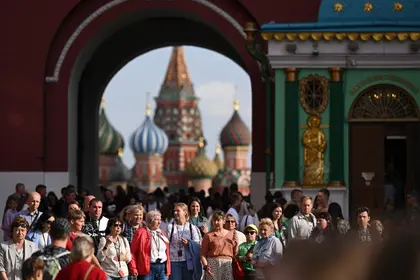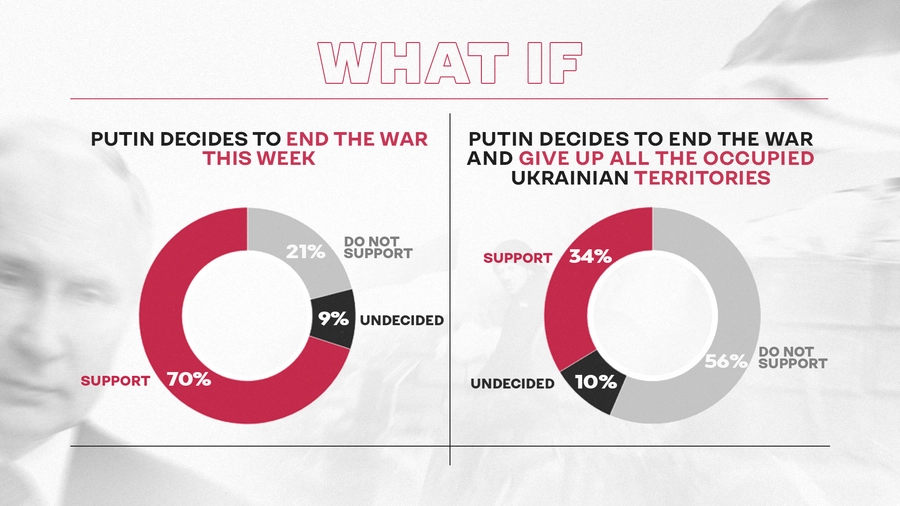70% of Russians would support their President, Vladimir Putin, if he decided to end the war against Ukraine this week. However, only one in three would support such a move if an end to the war was accompanied by returning all occupied Ukrainian territories.
These figures are according to a survey conducted in Russia by the Levada Analytical Centre through personal interviews on Oct. 19-25.
JOIN US ON TELEGRAM
Follow our coverage of the war on the @Kyivpost_official.
The survey also found that if they could go back in time and cancel Russia's full-scale invasion of Ukraine, only 41 percent of respondents would not start the war.
The majority of support for the start of a “military special operation” was in the 55 years and older age group of which 51 percent supported Putin’s February 2022 decision.
Among younger age groups, especially those under 24, 56 percent were both in favor of cancelling the war or wouldn’t have started it in the first place.
Moscow residents who supported the start of the “special military operation” was somewhat higher at 55 percent compared with those from outside of the capital.
Almost half of Russians believe that the war in Ukraine will continue for some time, with 23 percent believing that it will last from 6 months to a year but 46 percent thinking will last for more than 12 months.
The respondents were also asked what had caused Russia's war against Ukraine in their own words rather than in response to a pre-formatted option.

EXPLAINED: What We Know About Russia’s Oreshnik Missile Fired on Ukraine
25 percent said it was necessary to launch the “military special operation” to liberate the Donbas and to protect Russians residing there. 14 percent repeated the refrain that it was to “eradicate fascism and destroy Nazism” with 13 percent saying it was in response to aggression by Ukraine and Western countries.
In February, the Levada think tank had asked Russians the same questions. Back then, they gave the goals of the “special operation” as: “preventing an attack on Russia, and securing the borders” - 30 percent, “protecting Russian/Russian-speaking civilians, the Donbas - 27 percent and “getting rid of nationalists, eradicating fascism” - 12 percent.
In recent months opinions on whether to continue hostilities or start peace talks has changed little: 55 percent believe that negotiations should be started, compared with 51 percent in September and 38 percent supporting the continuation of hostilities (against 39 percent in September.
67 percent of respondents saw the return of the Zaporizhzhia and Kherson regions to Ukraine as an unacceptable condition for negotiations with 71 percent feeling the same about the return of occupied Luhansk and Donetsk, and 76 percent opposing Ukraine's accession to NATO.
You can also highlight the text and press Ctrl + Enter







